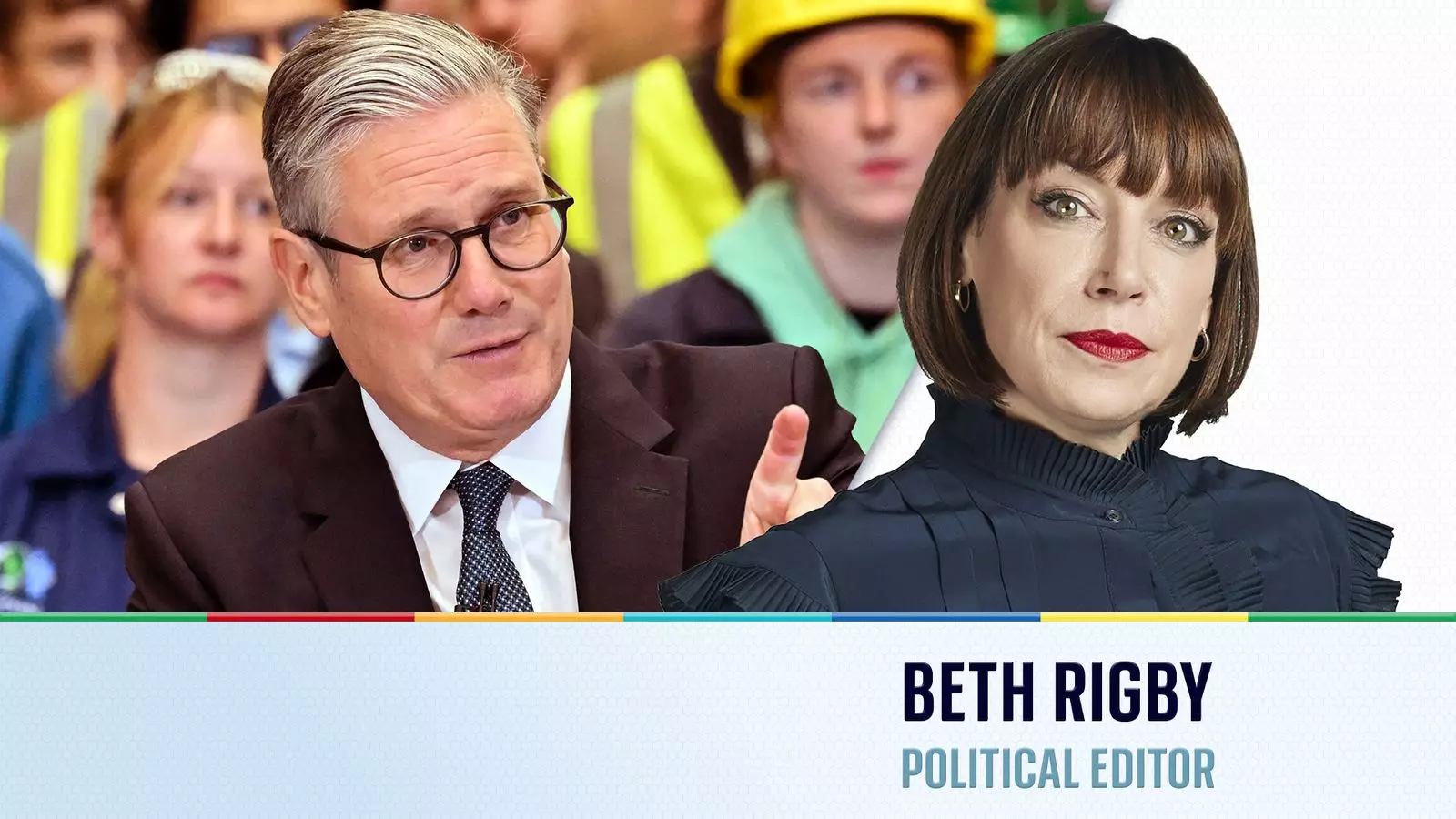In recent years, the political landscape of the United Kingdom has morphed dramatically, transitioning from a focus on welfare and social support systems to an alarming preoccupation with defense and militarisation. Sir Keir Starmer, the current leader of the Labour Party, has recently amplified this shift by advocating for a “war-fighting readiness” model. During a strategic address in Glasgow, he articulated a vision that positions Britain as a nation freshly stirred from its post-Cold War slumber. The talk of immediate threats in a contemporary geopolitical framework is stirring, indeed, but more alarming is the implication that this ideology comes at the potential cost of the welfare state championed by figures like Clement Attlee.
The Welfare State vs. Warfare State
At the core of Starmer’s calculated rhetoric lies a jarring juxtaposition: the need for a robust military footing contrasted against the crumbling remnants of a safety net for the vulnerable. Starmer’s vow to boost defence spending to meet an ambitious 3% GDP target may evoke feelings of national pride and resilience, yet it surfaces deeper anxieties about the government’s priorities. He argues that each citizen has a role in facing down threats, creating an illusion of unity while distracting from the very real divisions within society. This choice—to bolster military expenditure while wrestling with austerity measures—raises a fundamental question: which state do we truly desire? A warfare state that invests heavily in arms at the expense of its people, or a welfare state that prioritizes human dignity and social justice?
A Question of Choices
What is particularly troubling about Starmer’s stance is his evasiveness regarding necessary sacrifices. He hints at a war-focused agenda without tackling the fiscal implications of it. When examining national defence alongside the welfare state, it becomes painfully evident that choices must be made. What budgetary constraints will become the scourge of vulnerable communities if the government is more intent on military readiness than on welfare services? Starmer’s administration appears caught in a taut bind, where appeasing defence hawks competes against the patience of those who rely on government support to survive—the pensioners facing cuts, families burdened by benefit caps.
In light of this perilous balancing act, one must wonder: does Starmer have the fortitude to make decisions that might not be politically palatable? After all, the mantra of “sticking plaster politics” surfaces here. The government’s reluctance to make bold budgetary cuts in all sectors suggests a reluctance to embrace transparency, to admit that a significant investment in military engagement may well lead to a further erosion of social support systems.
An Uncertain Future
Despite Starmer’s proclamations, the concerns of ordinary citizens linger heavily in the balance. The failure to specify when these ambitious defence goals will translate into fiscal reality does little to assuage the anxieties of those grappling with inflation, energy costs, and day-to-day survival. Moreover, by teasing ideas such as lifting the two-child cap on benefits as a reaction to electoral backlash, the narrative becomes increasingly muddied. This indecisiveness on welfare cuts sends a mixed signal to both voters and party members, who are left wondering if their leader is truly ready to lead a government that prioritizes the nation’s security while also tending to its most vulnerable.
Time for Accountability
As the populace grows restive in light of decisions that appear to serve militaristic imperatives more than community welfare, Starmer must come to terms with the chasm between his lofty ambitions and the grounded realities of voters’ expectations. The questions arise: Is he genuinely prepared to sacrifice vital social supports to cater to an increasingly militaristic agenda? Can Britain afford a warfare state without sacrificing the very essence of what a welfare state aspired to provide—a safety net, compassion, and care for all its citizens?
In the end, this dilemma emerges as a significant litmus test for Starmer’s leadership. His government’s path forward may well define the future of British social and political landscape, hinging upon whether it can embrace a dual commitment to both national safety and social security.

Leave a Reply